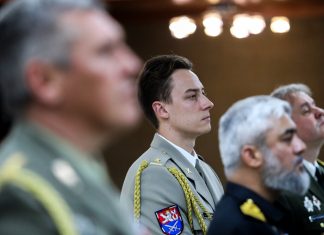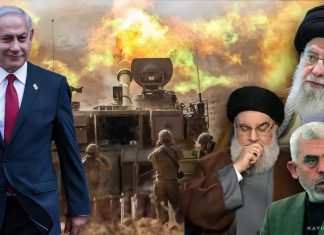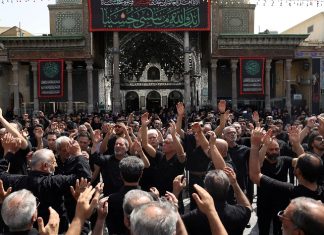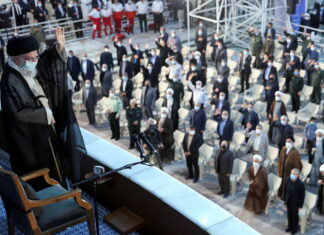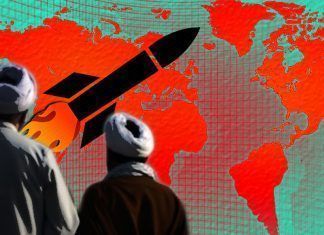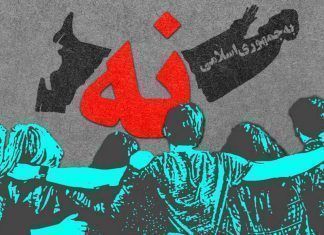Lieutenant General Ghasem Soleimani, the former commander of the Islamic Revolutionary Guards Corps’ Qods Force (IRGC-QF), persuaded Russia to join the fight against the Islamic State of Iraq and the Levant (ISIS) in Syria, according to Brigadier General Hossein Dehghan, an advisor to Iran’s Supreme Leader Ayatollah Ali Khamenei.
General Dehghan, a former Minister of Defense (in office 2013-17), made the comments in an interview with the Tasnim news agency on February 18.
“We held several meetings with General Soleimani on how to approach Moscow well before Russia joined the fight against ISIS,” Dehghan said. “I was scheduled to speak to [President Vladimir] Putin in Moscow, but it was General Soleimani’s meeting with him [Putin] some time earlier that resulted in Russia getting involved in Syria.”
“Initially, Russia wanted to be in charge of the logistics and command operations, with Iran putting troops on the ground,” Dehghan explained. “We, however, insisted that General Soleimani should command all the operations, and they [Russians] must provide logistical support.”
[aesop_image img=”https://kayhanlife.com/wp-content/uploads/2020/02/dehghan_8y87.jpg” panorama=”off” credit=”Hossein Dehghan, an advisor to Iran’s Supreme Leader Ayatollah Ali Khamenei. KAYHAN LONDON” align=”center” lightbox=”off” captionsrc=”custom” captionposition=”left” revealfx=”off” overlay_revealfx=”off”]
General Dehghan, who served as a senior officer in the Aerospace Forces of the IRGC in the 1990s, pointed out: “General Soleimani was known both as the commander of the IRGC-QF and a seasoned diplomat in international political circles. He would have been an influential figure even if he had not been the commander of the IRGC-QF.”
“Mr. Putin viewed Haj Ghasem as more than a military commander. He thought of Haj Ghasem as a crucial figure involved in the country’s political and administrative machinery,” Dehghan noted. “Leaders of other countries such as [the Turkish President Recep Tayyip] Erdogan held the same view of Haj Ghasem.”
In a veiled reference to Foreign Minister Mohammad Javad Zarif’s limited role in Iran’s foreign policy in the Middle East and the region, Dehghan said: “One may have the title and the authority, but being able to conduct negotiations is an entirely different matter. It is crucial to have the skill to hold meaningful talks with the other side because, in today’s world, everything revolves around the cost-benefit analysis.”
“Mr. Putin would get involved in Syria only if he could justify the cost. Persuading Mr. Putin was, therefore, the key,” Dehghan added. “General Soleimani presented Putin with a convincing argument about the serious threats posed by ISIS to the region and the world. General Soleimani could be very persuasive. He was highly gifted in that respect.”
Dehghan is not the only senior Iranian official to describe General Ghasem Soleimani — who was killed in a U.S. targeted drone attack on the Baghdad International Airport on January 3 — as a warrior-statesman.
According to Hossein Amir-Abdollahian, an aide to the Majlis (Iranian Parliament) Speaker Ali Larijani, General Soleimani spearheaded the trilateral talks between Iran, Iraq, and the U.S.
Mr. Amir-Abdollahian made the comments at a conference titled “Various Aspects and Consequences of Haj Ghasem Soleimani’s Assassination,” held at the School of International Relations in Tehran on January 19.
[aesop_image img=”https://kayhanlife.com/wp-content/uploads/2020/02/russia-7888-soleimani.jpg” panorama=”off” credit=”Russian military personnel pay tribute to Soleimani. KAYHAN LONDON” align=”center” lightbox=”off” captionsrc=”custom” captionposition=”left” revealfx=”off” overlay_revealfx=”off”]
“General Soleimani was an exceptional military commander and a seasoned diplomat,” Amir-Abdollahian was quoted by the Islamic Republic News Agency (IRNA) as saying. “The leadership put him in charge of the talks during the trilateral meetings between Iraq, Iran, and the U.S. The general spent up to 100 hours chairing every meeting which sometimes lasted until two o’clock in the morning.”
Russia and the Islamic Republic have always denied media reports on Soleimani’s frequent visits to Moscow.
The notion that Soleimani manipulated Putin into joining the war in Syria is rather farfetched given that Putin came up through the ranks of the Soviet Union’s notorious security agency KGB and ultimately became the leader of a superpower by navigating the perilous political corridors of Kremlin.
Although General Soleimani distinguished himself and rose quickly through the military ranks during the Iran-Iraq War (1980-88), he lacked formal education and political experience on the world stage.
In an interview with the Tehran-based Jamaran news website on February 10, Mahmoud Doaei, the managing editor of the daily Ettelaat, said: “He [Soleimani] was a from a tribal farming family. They were livestock farmers and led a quiet life close to nature. His father was reportedly a well-liked and trusted shepherd.”
“After receiving his high school diploma, he joined the workforce,” Mr. Doaei explained. “He reportedly liked construction work. He even got a contract with the local water department.”
While General Soleimani’s military achievements arguably benefited the regime of Syrian President Bashar al-Assad and extended the presence and influence of the Islamic Republic in Iraq and the region, they inflicted a hefty financial and human cost on Iran.
Soleimani worked closely with the Russian military in Syria, and Moscow rebuked the U.S. over its assassination of the General.
The national security advisers of Russia, Israel, and the U.S. held a trilateral meeting in June 2019 on curbing Iran’s influence in Syria. Following the summit, Israel and the U.S. increased their airstrikes against the IRGC military bases in Syria. It would not be far-fetched to think the three powers might have also discussed the fate of General Soleimani at the summit.
[Translated from Persian by Fardine Hamidi]

